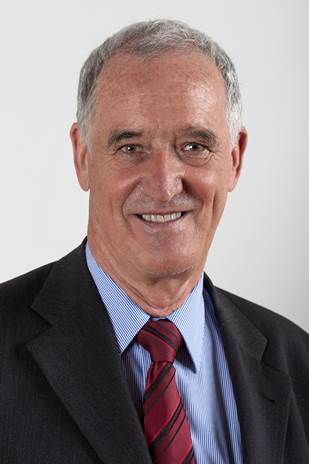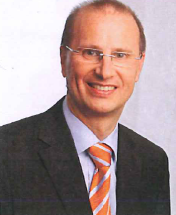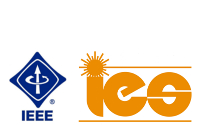Regular Papers:
Submission deadline (Extended)
March 15, 2015
WiP papers:
Submission deadline (Extended)
April 19, 2015
SIES'2015: 10th IEEE International Symposium on Industrial Embedded Systems
Sponsored by: University of Siegen, and IEEE Industrial Electronics Society
Background
Application domains have had a considerable impact on the
evolution of embedded systems, in terms of
requiredmethodologies and supporting tools and resulting
technologies. SoCs are slowly making inroads in to the area of
industrial automation to
implement complex field-area intelligent devices which
integrate the intelligent sensor/actuator functionality by
providing on-chip signal onversion, data processing, and
communication functions. There is a growing tendency to network
field-area intelligent devices around ndustrial type of
communication networks. Similar trends appear in the automotive
electronic systems where the Electronic Control Units ECUs),
typically implemented as heterogeneous system-on-chip, are
networked by means of one of safety-critical communication
protocols.
Aim
The aim of the symposium is to bring together researchers and practitioners from industry and academia and provide them with a platform to report on recent developments, deployments, technology trends and research results, as well as initiatives related to embedded systems and their applications in a variety of industrial environments.
Topics include, but are not limited to:
Embedded Systems
Design and Validation of Embedded Systems; Real-Time Issues; Models of Embedded Computation; Design and Verification Languages; Operating Systems and Quasi-Static Scheduling; Timing and Performance Analysis; Power Aware Embedded Computing; Adaptive Embedded Systems; Security in Embedded Systems.
System-on-Chip and Network-on-Chip Design & Testing
Design of Application-Specific Instruction-Set Processors; Design and Programming of Embedded Multiprocessors; SoC Communication and Architectures; NoC Communication and Architectures; Design of SoC/NoC; Platform-Based Design for Embedded Systems; Reconfigurable Platforms; Multiprocessor SoC Platforms and Tools; Testing of Embedded Core-based Integrated Circuits.
Networked Embedded Systems
Design Issues for Networked Embedded; Middleware Design and Implementation for Networked Embedded Systems; Self Adaptive Networked Entity Sensor Networks: Architectures, Energy-Efficient Medium Access Control, Time Synchronization Issues, Distributed Localization Algorithms, Routing, Distributed Signal Processing, Security.
Embedded Applications
Industrial Automation and Controls; Automotive Applications; Industrial Building Automation and Control; Power (sub-) Station Automation and Control; Intelligent Sensors, etc. - design, maintenance, fault tolerance & dependability, networks, infrastructure, safety and security.
Keynote Speakers
Alfons Crespo
.jpg)
|
Technical University of
Valencia |
| Professor of Department of Computer Engineering | |
| Challenges in embedded multicore system virtualization for critical systems |
Abstract:
The integration of components with different levels of
criticality onto a common hardware platform is becoming crucial
in the development complex embedded systems. Virtualization
techniques is one of the most promising technologies to fulfill
the requirements for this integration. Fault management,
temporal and spatial isolation and security are the main
aspects to be considered. The goal of the virtualization is to
provide a virtual view of the underlying platform by easing its
use to build execution environments. From the technological
point of view, several issues impact directly in the
virtualization of the multicore platform such as type of the
virtualization (full or partial), temporal impact of the
multicore platform, resource management, etc. Partitioned
systems for critical applications can represent the future of
embedded systems. In this talk, the main challenges and the
application fields of the virtualization of embedded multicore
for critical systems will be presented.
Curriculum Vitae:
Alfons Crespo is Professor of the Department of Computer
Engineering of the Technical University of Valencia.He received
the PhD
in Computer Science from the Technical University of Valencia,
Spain, in 1984. He held the position of Associate professor in
1986 and full Professor in 1991. He leads the group of
Industrial Informatics and has been the responsible of several
European and Spanish research projects. His main research
interest include real-time systems, (scheduling, hardware
support, scheduling and control integration, ...) and
virtualization techniques. His recent activities include the
design and development of the XtratuM hypervisor that is
candidate for space missions. He has published more than 60
papers
Hermann Kopetz

|
Vienna University of
Technology |
| Professor Emeritus at the Technical University of Vienna | |
| Complexity Management in Cyber-Physical System-of-Systems |
Abstract:
Abstract: Due to the impressive cost/performance improvements
of computer hardware over the past decades, today the major
share of the cost of a large cyber-physical system is in the
non-physical domain, i.e., in the time needed to capture the
requirements, to design and test the software, and to maintain
and evolve the system in order to keep its services relevant to
an ever changing environment. This time depends on the
cognitive complexity of the system. In this presentation we
discuss the notion of cognitive complexity and elaborate how
the well-established simplification principles of partitioning,
abstraction and segmentation can be applied to the design of
cyber-physical system-of-systems.
Curriculum Vitae:
Hermann Kopetz is professor emeritus at the Technical
University of Vienna. He is the chief architect of the
time-triggered technology for dependable embedded Systems and a
co-founder of the company TTTech. The time-triggered technology
is deployed in leading aerospace, automotive and industrial
applications. Kopetz is a Life Fellow of the IEEE and a full
member of the Austrian Academy of Science. Kopetz served as the
chairman of the IEEE Computer Society Technical Committee on
Dependable Computing and Fault Tolerance and in program
committees of many scientific conferences. He is a founding
member and a former chairman of IFIPWG 10.4 and has been a
member of the ISTAG advisory group at the European Commission
in Brussels from 2008-2012. Kopetz has written a widely used
textbook on Real-Time Systems and published more than 200
papers. In June 2007 he received the honorary degree of Dr.
honoris causa from the University Paul Sabatier in Toulouse,
France and in 2014 he received the Jean-Claude Laprie Award in
Dependable Computing from the IFIP WG. 10.4
Gernot Spiegelberg

|
Siemens AG Munich
|
| Siemens AG Corporate Technology Vice President, Director of Electromobility Concept Development | |
| Requirements on E/E-system architecture for future car concepts - example eMobility with project RACE |
Abstract:
Fully automated driving and electromobility are promising approaches to address the challenges of mobility with regards to sustainability, urbanization and demographic change. However, both have high demands with regards to non-functional properties of the E/E architecture (in particular safety), and development efficiency, i.e. the time- and cost effective development, validation and deployment of new automotive functions. These can hardly be fulfilled with the existing architecture, which has resulted from 30 years of evolutionary development. We argue that new “revolutionary” approaches are needed, as addressed by the RACE project, a German initiative which had developed a new E/E platform from scratch. The goal was to use commodity processor and network technologies and to develop a platform providing fail-operational behavior using switched Ethernet, but also to allow “mixed criticality” and the update of even safety-critical SW in the field. We present both the approach and the results of the project and provide an outlook to future research directions.
Curriculum Vitae:
Since May 2008, Gernot Spiegelberg (born 1959) has headed Siemens AG's Lighthouse Project ECar in the company's central research Previously, in his role as Executive Vice President, Spiegelberg bore global responsibility for group Strategy/Technology at Siemens VDO Automotive AG. Spiegelberg holds a doctorate in engineering and an honorary professorship and teaching position at the Technical University of Budapest. He has held a variety of management positions in industry, including 18 years at Daimler-Chrysler where he was responsible for global advance development in mechatronics. Gernot Spiegelberg has been a Rudolf-Diesel-Industry Senior Fellow at the Technical University of Munich since July 2010. In this capacity, he will examine electromobility issues together with TUM researchers.
Submission of Papers
Manuscripts must be submitted electronically in PDF format,
according to the instructions contained in the Conference web
site. Contributions must contain original unpublished
work. Papers that have been concurrently submitted to other
conferences or journals (double submissions) will be
automatically rejected. Papers are to be submitted
electronically in PDF format.
Two types of submissions are solicited: Long Papers - from 6 to
10 double-column pages (typically 8 pages).
Work-in-Progress Papers - limited to 4 double-column pages.
Latex
templates can be found under this link.
Paper Acceptance
Each accepted paper must be presented at the conference by one of the authors. The final manuscript must be accompanied by a registration form and a registration fee payment proof. All conference attendees, including authors and session chairpersons, must pay the conference registration fee, and their travel expenses.
All papers, including the WiP, are going to be published in IEEEXplore.
Author's Schedule (Extended)
Regular Papers:Submission deadline: March 15,
2015
|
WiP papers:Submission deadline: April 19, 2015
|
CLICK TO SUBMIT PAPER

.jpg)
